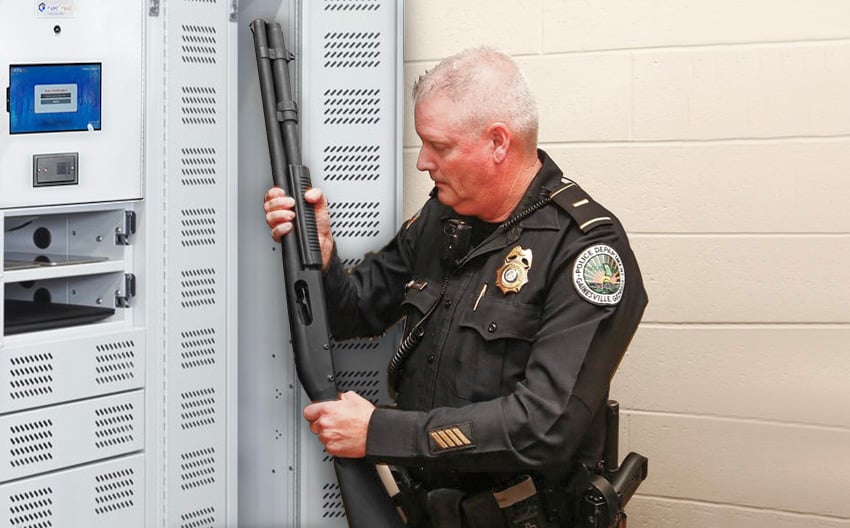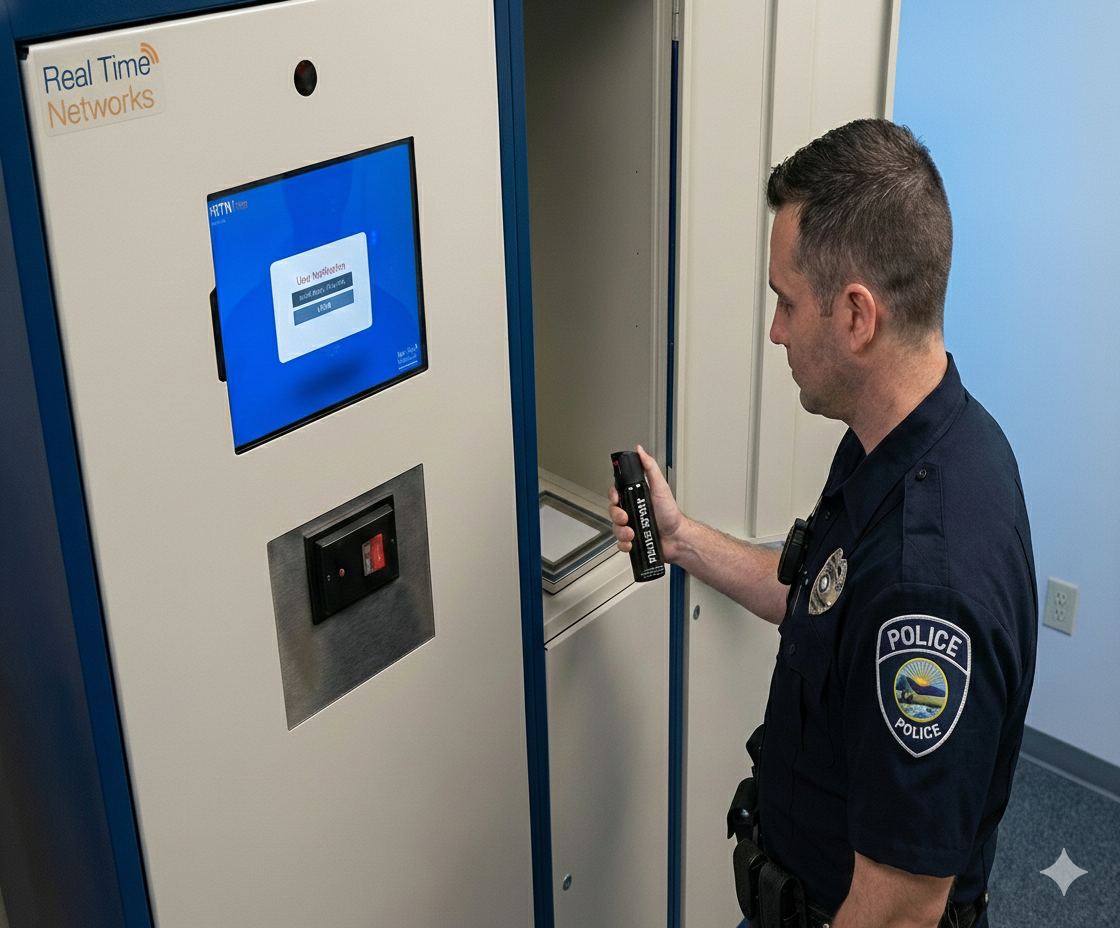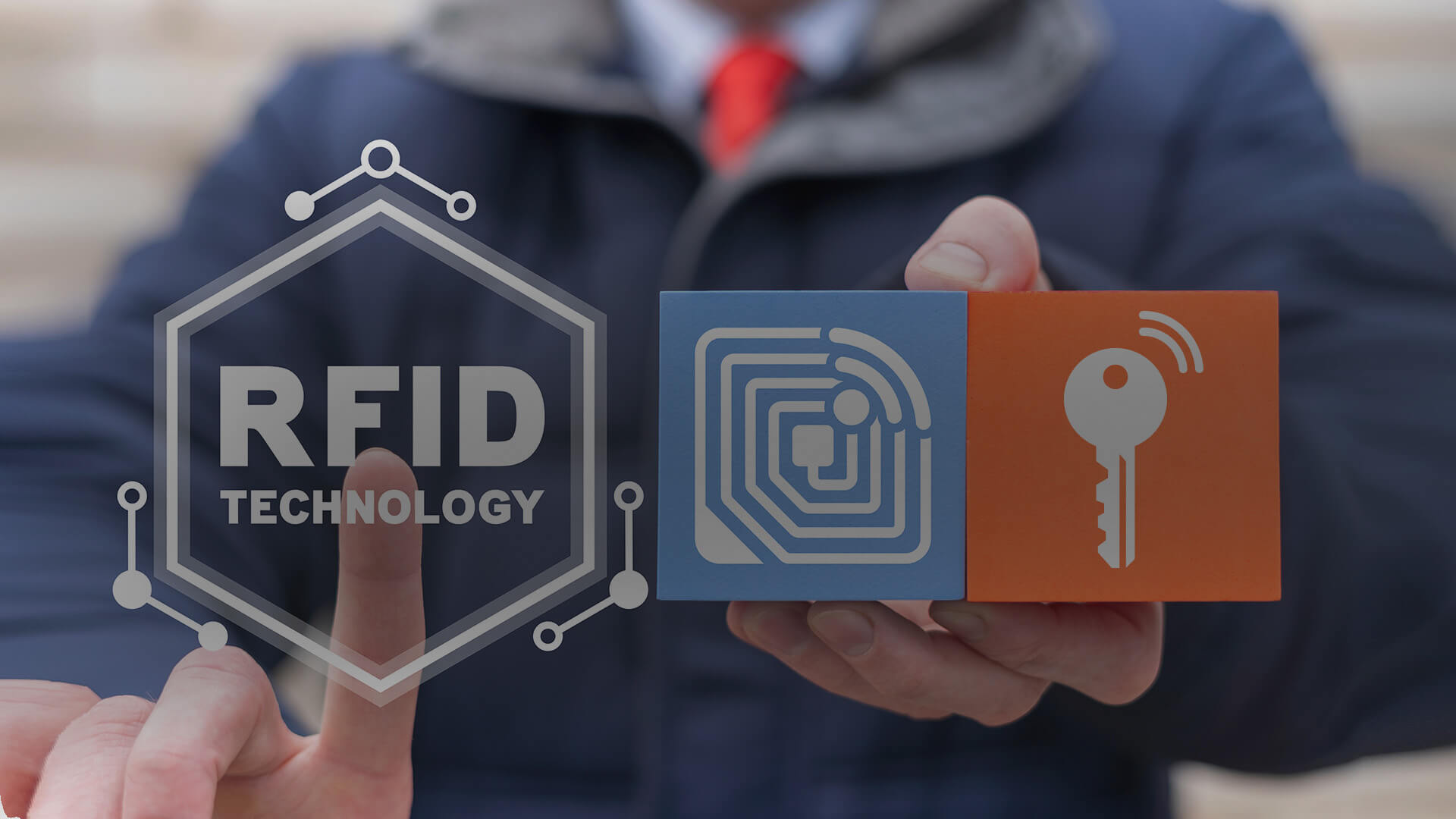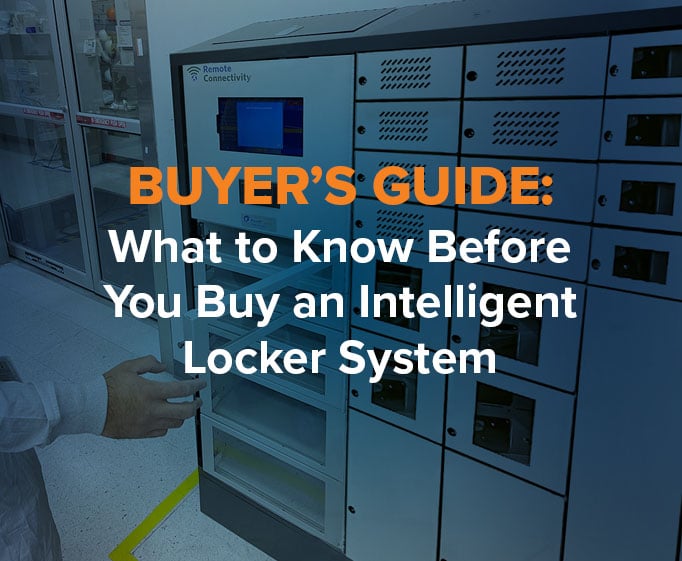By Jay Palter | April 17, 2025
Asset lockers sound like straightforward security products. You put valuable equipment in, only authorized users can take the equipment back out, end of story. However, when you add in smart automation technology, electronic lockers can become powerful tools for managing how your wider business operates.
Electronic lockers offer digital solutions to real-world business problems. They can improve many activities, including everything from equipment tracking, to managing regulatory compliance, even to no-contact, unattended asset delivery.
Electronic lockers aren’t just for security departments either. Teams across many industries have discovered powerful, effective uses for electronic lockers. This article explains exactly how electronic lockers work and describes just some of the many uses Real Time Networks customers have for electronic lockers in their industries.
What Are Electronic Lockers?
Electronic lockers are secure storage systems that use digital access controls and software to manage, track, and protect valuable assets. They're widely used in industries like law enforcement, warehousing, healthcare, and education for their ability to automate asset control and reduce loss or misuse.
Electronic Lockers: A Platform for Automating Key & Equipment Management
If all your company cares about is secure storage, then traditional offline lockers are the best choice for you. But if your equipment is expensive, regulated, or used in complex or important workflows, electronic lockers can handle critical management tasks like equipment tracking, maintenance workflows, and secure access control..
Electronic lockers also have secure storage compartments, but they come integrated with a computer control system and a network of sensors that can monitor and track items stored in those compartments. That computer system also tracks which assets are signed in and out by your personnel.
The integrated computer system can automate many time-consuming tasks. For example, you can use an electronic locker system to automatically manage maintenance requests without an equipment manager ever needing to get involved.
If a user returns a defective laptop to the locker system, the access terminal can prompt the user to report any issues. For example, the user reports that the laptop crashes when they open a particular application. The locker system will prompt the user to deposit the laptop in a specific maintenance compartment, send an email alert to your tech support team, and prevent anyone not on that team from signing the laptop back out until tech support reports the issue resolved.
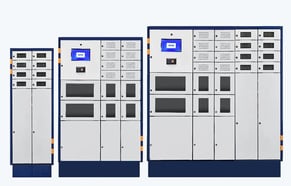
See how electronic lockers can transform your asset security and efficiency.
Industry Use Cases
Real Time Networks has worked with a broad range of businesses in many different industries. While you can find common patterns among them—namely, an interest in streamlining costly, tedious manual work—each uses key and asset lockers in different and interesting ways.
Here are just some of the uses our customers have found for electronic lockers.
Warehouses, Shipping & Logistics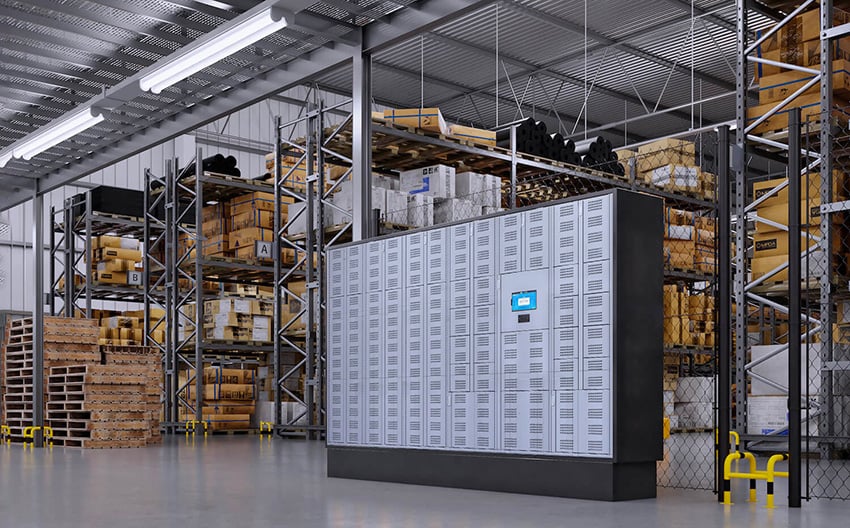
In busy distribution centers, each staff member uses a handheld scanner to identify, track, and update the products they’re working with. But while these centers may have excellent inventory controls for their own products, some don’t for the scanners on which their shipping operations depend.
Real Time Networks worked with one international clothing company that was certain they were losing excessive scanners but didn’t have a tracking mechanism in place to know for certain. So their warehouse supervisors did some digging, and they found out that workers were hoarding their favorite scanners, hiding them around the warehouse. After putting all scanners in an asset locker so supervisors could track them, they discovered through the warehouse inventory management software that they had almost twice as many scanners as they actually needed!
Law Enforcement
Law enforcement agencies use a large volume of equipment day in, day out. Officers need to sign out a mix of different items, from handguns to radios, laptops, and tasers. It may only take a few minutes for an equipment manager to get each officer their gear, but add those minutes up shift after shift, month after month, year after year, and these agencies are looking at a considerable amount of sunk time. Automated police lockers manage each transaction in seconds, freeing staff time for more productive work.
Law enforcement agencies also use evidence storage cabinets. Officers authenticate themselves and deposit evidence and records. Officers are restricted from signing it back out, so the chain of custody is preserved. Detectives, DAs, and other personnel working on cases sign out evidence when needed, with each transaction carefully tracked. Real Time Networks even offers refrigerated evidence lockers for securely storing biological samples.
Private Security Contractors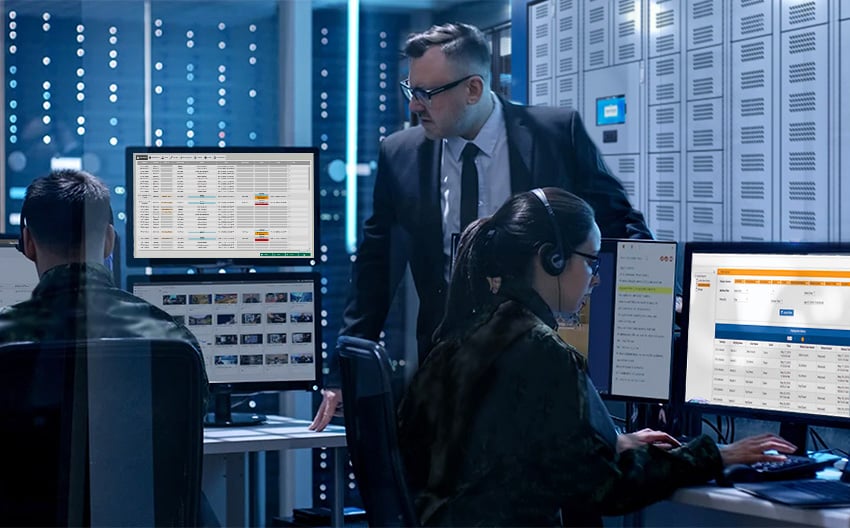
Many companies use private security contractors as a cost-effective alternative to maintaining in-house security teams. However, in some higher security settings, such as in financial institutions, those contractors need to carry handguns provided by the company. So without proper tracking, those institutions run the risk of potentially serious security breaches if guns go missing.
Real Time Networks worked with one North American financial institution that needed better tracking for handguns used by security contractors in their banks. They deployed AssetTracer gun storage lockers to allow contractors to sign guns in or out at shift changes, so the company always knew who had which weapons.
At the beginning of each shift, contractors would check out a handgun from the firearms locker and then check it back in at the end of their shift. Sometimes they would need to take weapons home for cleaning and servicing, which they could also log at the electronic locker, so supervisors always knew where weapons were at all times.
Colleges & Universities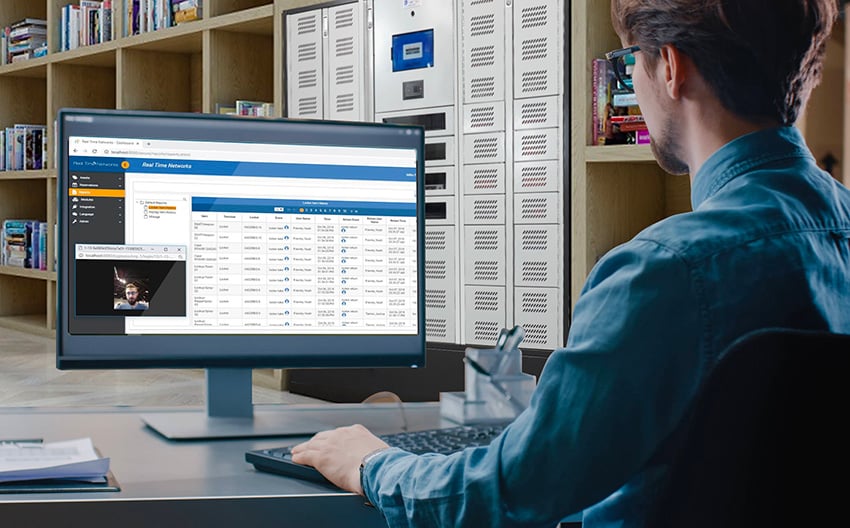
Higher education institutions have come to Real Time Networks with various requests. These organizations face security and operational challenges most other industries don’t encounter. For example, they typically have many student workers running their shops, cafeterias, and other points of sale. Most of those college POS locations now use tablets to manage purchases. Those tablets need to be secured when not in use, and many now use university electronic lockers to keep track of these valuable items.
Many university libraries have also contacted Real Time Networks about using library lockers for automating laptop lending programs. Students without their own laptops will swipe their campus card to sign out a laptop for studying or test-taking. The libraries want a way to track those devices without taking up too much staff time.
Since lockers can also track entire kits and all RFID-tagged components in those kits, some higher ed institutions also use lockers for managing facilities kits or security officer kits.
Corporate Offices
As companies continue with remote work programs, many are looking for efficient ways to provide new hires on remote or hybrid work schedules with all the equipment they need. Those remote work kits typically include a company laptop, phone, and other devices.
To minimize the risk of COVID transmission, they also prefer non-contact methods for handling this equipment. As a result, these corporate officers are more and more turning to Real Time Networks to use laptop lockers as unattended distribution systems for employees to grab their equipment 24/7.
Hotels & Resorts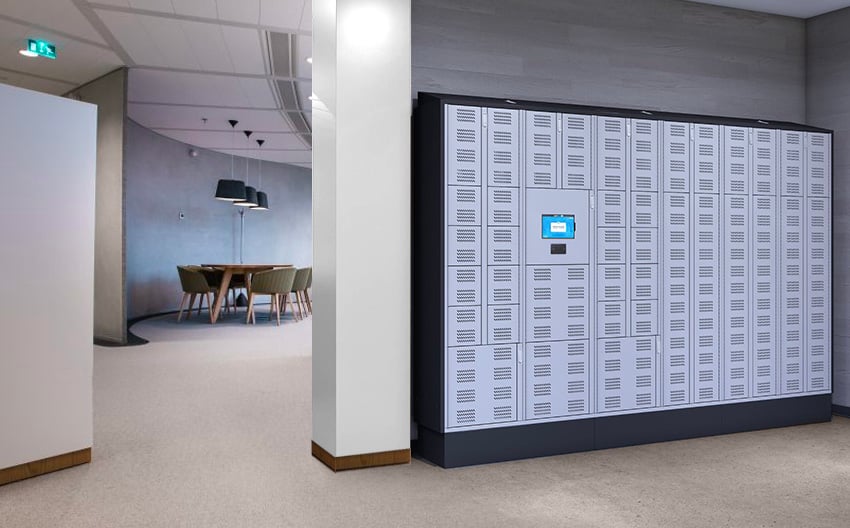
More and more hotels are looking to use asset lockers to improve process control over all aspects of customer service. Today, many use hotel lockers to store and track the tablets that have become vital to their housekeeping operations. For example, when customers check in early, looking for the next available room. Instead of the front desk waiting for a housekeeper to finish their rounds, the housekeeper can log each room turned over the moment it is done so that the front desk can get waiting guests up to their rooms as fast as possible.
Casinos & Gaming
Gaming establishments use tablets and radios for customer service much as hotels do, with similar storage needs. But casinos also contend with much tighter regulations over storing and managing their keys. For example, a slot machine can have three keys to secure different components, like the cashbox, circuit board, and mechanical components. So casinos need to keep careful track of who has access to these keys and present their compliance to regulators.
Emergency Services & Healthcare Centers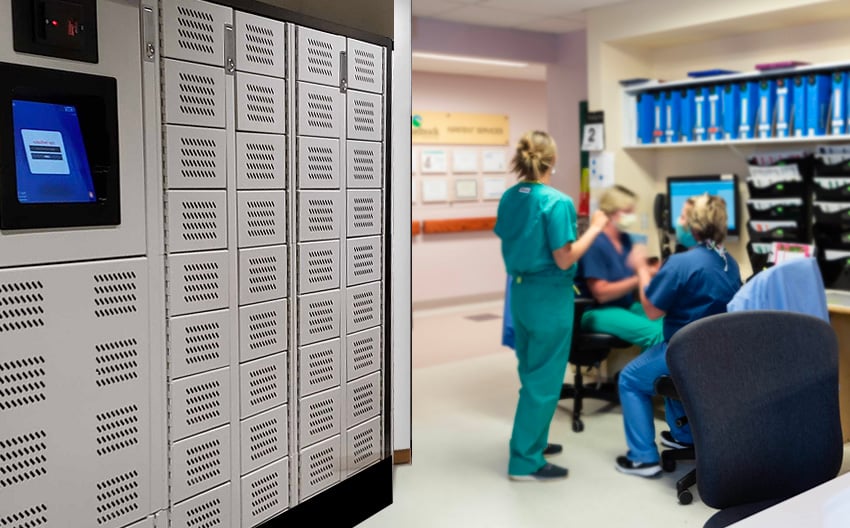
Medical service teams have found several important uses for electronic lockers. For example, EMS teams often come to Real Time Networks for intelligent storage solutions for their narc kits—medication bags containing regulated narcotics. In many US states, like California, EMS agencies must track who has access to each narc kit and which meds were used on calls. At kit signout and return, An AssetTracer intelligent electronic locker presents EMTs with checklists to verify med use and current quantities.
Ambulance companies also can’t wait for a day shift inventory manager to assemble kits and other gear for them. They need to be able to grab everything they need on their way out the door. Many ambulance companies use the content surveillance feature in electronic lockers to monitor each individual component in the kits they hand out to EMTs. The system can verify they have everything they need available and verify that they actually took everything they were supposed to as an added safety precaution. Showing up at a call is not the time for an EMT to realize they're missing important items.
Back at the hospital, emergency departments and in-patient centers struggle to manage all of the personal belongings of new patients. In some instances, that even includes large amounts of cash. More and more hospitals are turning to intelligent lockers to manage their patients’ personal effects. A nurse will catalog and deposit everything that came in with a patient in an available electronic locker compartment. Then, when the patient is ready to be discharged, they’ll verify their identity at the access terminal and collect all of their belongings.
Transportation Centers & Airports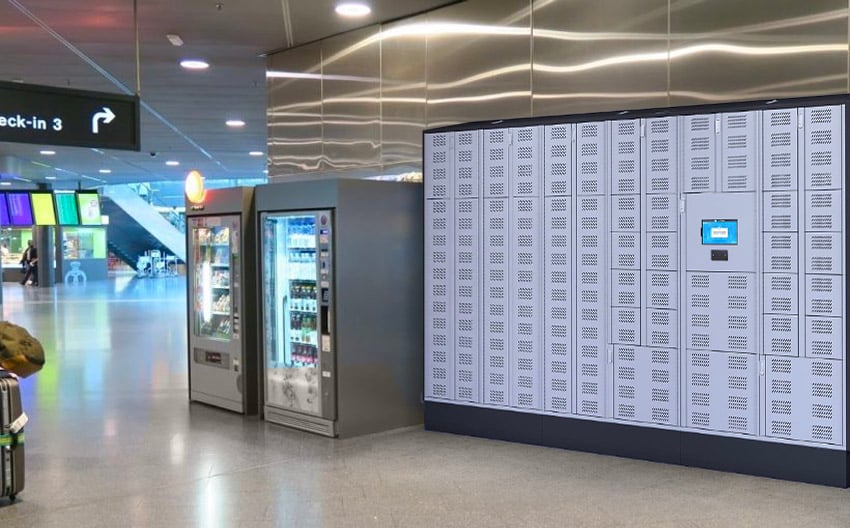
Technicians in train yards and at vehicle fleet lots use tablets to pull up all of their checklists and manuals when servicing vehicles. Those tablets need to be stored and tracked, and many of these transportation agencies have turned to Real Time Networks to provide automated intelligent lockers for that task.
Finally, one of the most interesting use cases we’ve come across was from the airline industry. Airlines conduct their food preparation in secure airport facilities with direct access to their airplanes. That requires keeping an inventory of large knives on hand. We worked with a major airline to embed RFID tags right in the handles of their knives. Using an AssetTracer locker system, they get live, automated confirmation that knives are returned and haven't made their way onto airplanes.
What can an Intelligent Electronic Locker do for you?
These are just some of Real Time Networks customers' uses for electronic lockers. With so many different hardware and software configurations available, any organization can customize a locker system for the tracking and management tasks they care about the most.
eBook: The Ultimate Guide to Electronic Lockers
Learn everything you need to know about choosing, implementing, and maximizing an electronic locker system for secure and efficient asset management.
Subscribe to our blog

Jay Palter
Vice President of Marketing & Partnerships
